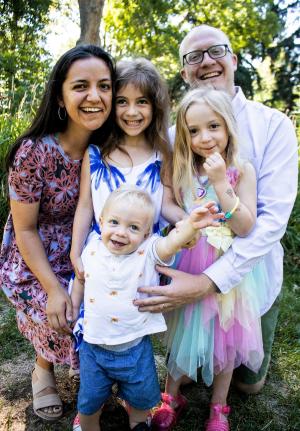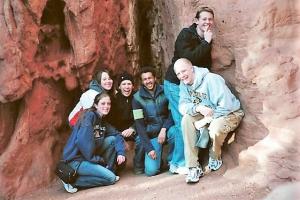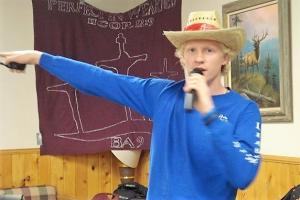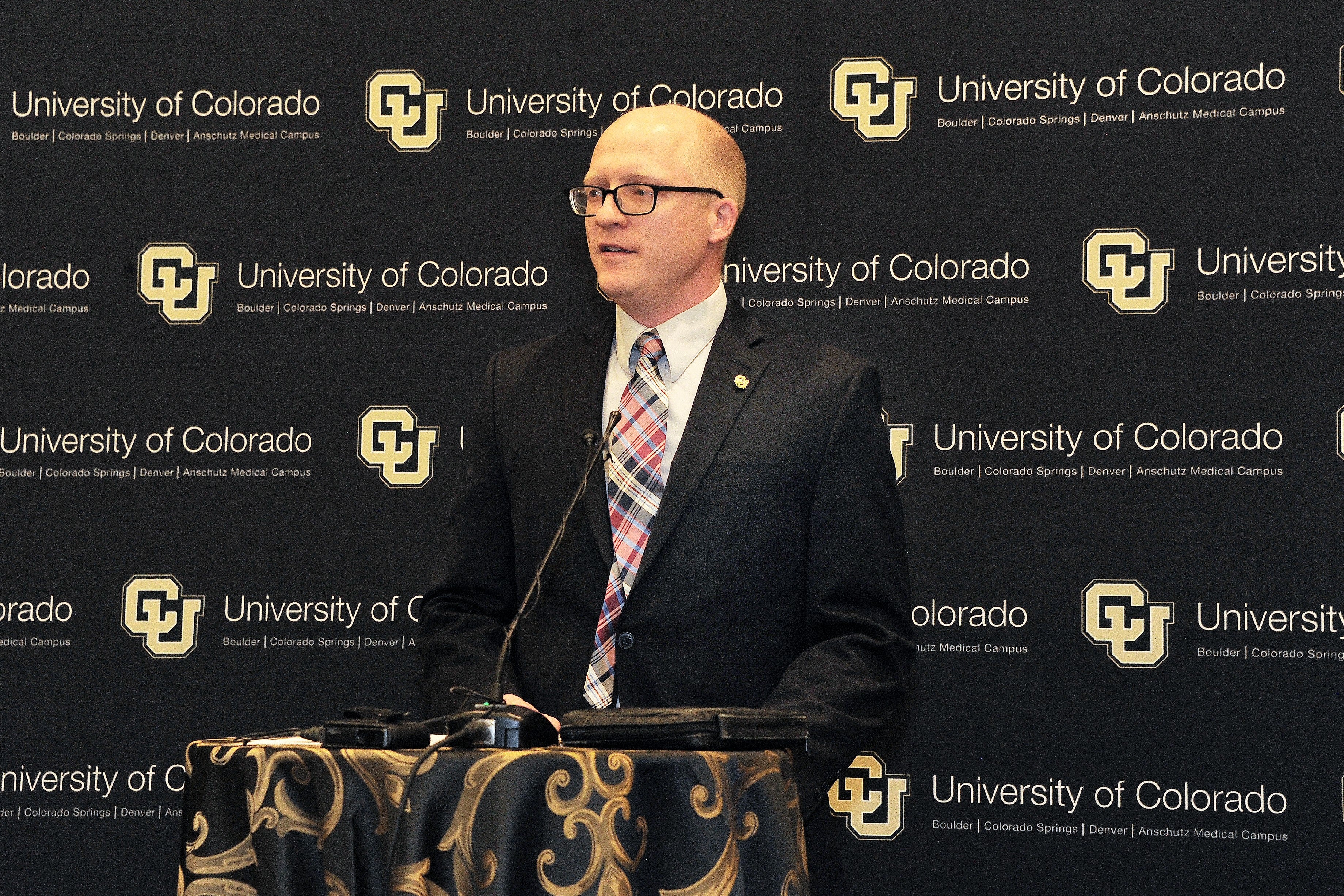Five questions for Mark VanDriel
Mark VanDriel attended CU Boulder as an undergraduate on his way to becoming an educator. He earned a doctorate in American history at the University of South Carolina, and he taught undergraduates there for 10 years. When a course’s lessons concluded with the present day, he always wrapped up the semester the same way.
“I would start by spending a few minutes highlighting the current problems we face as a world, or in the geographic or thematic topic of the course, and just how terrifying these seem,” VanDriel said. “Then I would summarize just how challenging the problems were that humans overcame throughout our history. I would end by arguing that we are more educated now than ever before, producing more knowledge than ever before, and have more resources than ever before with which to overcome our problems.
“All of this is because of the power of our higher education system. I believe that the American public higher education system is one of the greatest products of human ingenuity for its fusion of unparalleled research and excellent education. I am honored to be a part of one of the great universities of this system, and grateful to everyone at CU for their contributions.”
A native of Greeley, VanDriel returned to Colorado in 2021. Last year, he successfully ran for the CU Board of Regents in the state’s new 8th Congressional District.
“I spent a lot of time talking to voters about the leadership role CU plays in higher education in our state, as well as the ways it uniquely serves all of Colorado,” he said.

VanDriel is the father of three young children, with a fourth on the way.
“Free time is more than a bit scarce, so I try to spend it with my children,” he said. “My wife and I both love board games, and I am currently introducing my eldest daughter to them. She is extremely good at The Mind.
“I love the outdoors, and for most of the year try to take at least one kid on a nature walk or hike every week. Finally, I love to read, and try to finish approximately a book a week, excluding professional books. This year my pace has been slower due to regent work, so I will probably only finish 25 to 30 books.”
1. What first interested you in running for the Board of Regents?
In mid-2021 when I returned to Colorado, I knew I wanted to run for a number of reasons.
I knew that I had developed an enormous amount of understanding about higher education operations and institutions, and that I wanted to find ways to stay involved as I moved past the period of my life of being an educator. I knew that coming out of the COVID pandemic and with the demographic transition facing our nation, there were enormous transformations in higher education brewing, and I wanted to be involved in that. I knew from helping my wife and her sister during college just how much opportunity there is to do better at serving first-generation students. I knew that changes in higher education take an extraordinary amount of time, that my children would be going off to college starting in about 12 years, that I wanted them to have the same quality and affordable education I had experienced, and therefore I should get involved right away.
Finally, I knew that the regent seat from my district would be open in 2022. When congressional districts were finalized, and I knew how much my passions, platform and experience met the needs of the district, it was full steam ahead.
2. How does your experience as an educator inform your work as a regent?
My 13 years as an educator included a lot of varied lessons. The first is a belief that all students can learn and similarly all problems can be overcome. Our obstacles are often much easier to overcome if we have the flexibility to adapt a different perspective.
Teaching taught me that planning is good, but overplanning is almost as bad as not preparing at all. Therefore, we should approach everything from the perspective of building the necessary preconditions to getting everyone able to do their work, and stop before we go any further. This fits very well with such a large system as CU, where no one can possibly be involved in everything going on. Trust in ourselves and each other is paramount.
Finally, my students showed me over and over again that cleverness and correctness matter a great deal, but neither are as sustainable predictors of success as hard work.
3. Since taking your oath of office in January, is there anything about the University of Colorado you’ve learned that you didn’t know before?
My background in higher education and the enormous amount of research I did while campaigning to be on the Board of Regents did a very good job of preparing me to understand many elements of the university and the operations of three of our campuses. I still have only a poor understanding of our Anschutz campus, and I look forward to learning more about it and visiting it this summer.
What I did not know at all was the people. While I have mostly only gotten to know the system administration and a select few individuals from campuses, I have been thoroughly impressed. We have a commitment to the common good, the state of Colorado, transformational research, and the power of higher education throughout the administration, as well as the desire to help bring these goods that CU does to more Coloradans.
4. What are the most pressing issues you expect the Board of Regents to deal with in the coming months?
I see three issues.
The COVID-19 pandemic is, mercifully, behind us. Many things have returned to pre-pandemic norms and expectations. However, many things have changed permanently. We have a great deal of work to do on adjusting our policies and procedures to incorporate working from home, distance learning and the tools for flexibility that the pandemic response created. I believe that this is a real opportunity for CU to demonstrate its leadership and special place in the higher education landscape.
Secondly, I believe that in the next two months we are going to see an enormous transformation in how college admissions are handled with regards to race – the likes of which has not happened in 50 years. While this transformation will impact our current policies only modestly, the change it brings is a phenomenal opportunity for us to express the Colorado vision and lay out how we are building a better, more diverse, future for higher education.
Finally, there are pressing routine issues. I am a big believer that just because things happen regularly doesn’t mean they are not important. We will have a budget to finalize, tenure applications and new programs to approve, new building projects to finalize, a new treasurer to hire, and so many areas to exercise our fiduciary duties to this university. I take all of these very seriously.

5. When you think of your time attending CU Boulder, what memories come to mind?
Several regents discussed recently the communities they found in college. All of us agreed that small cohorts provided us with invaluable support and unique experiences during our undergraduate years.

For me, I found this community through the St. Thomas Aquinas Catholic Center. Not only did I meet dear friends, experience spiritual growth and cement my moral values through St. Tom’s, but I also had my first opportunities leading large groups of people, strategic planning, budgeting, fundraising and successfully (or sometimes not) running business meetings. I was blessed to have opportunities to improve as a public speaker, hiker and dodgeball player, while engaging in interfaith dialogues and serving the wider community. I was very blessed with the community I found there, and how it helped me enjoy CU more fully.


